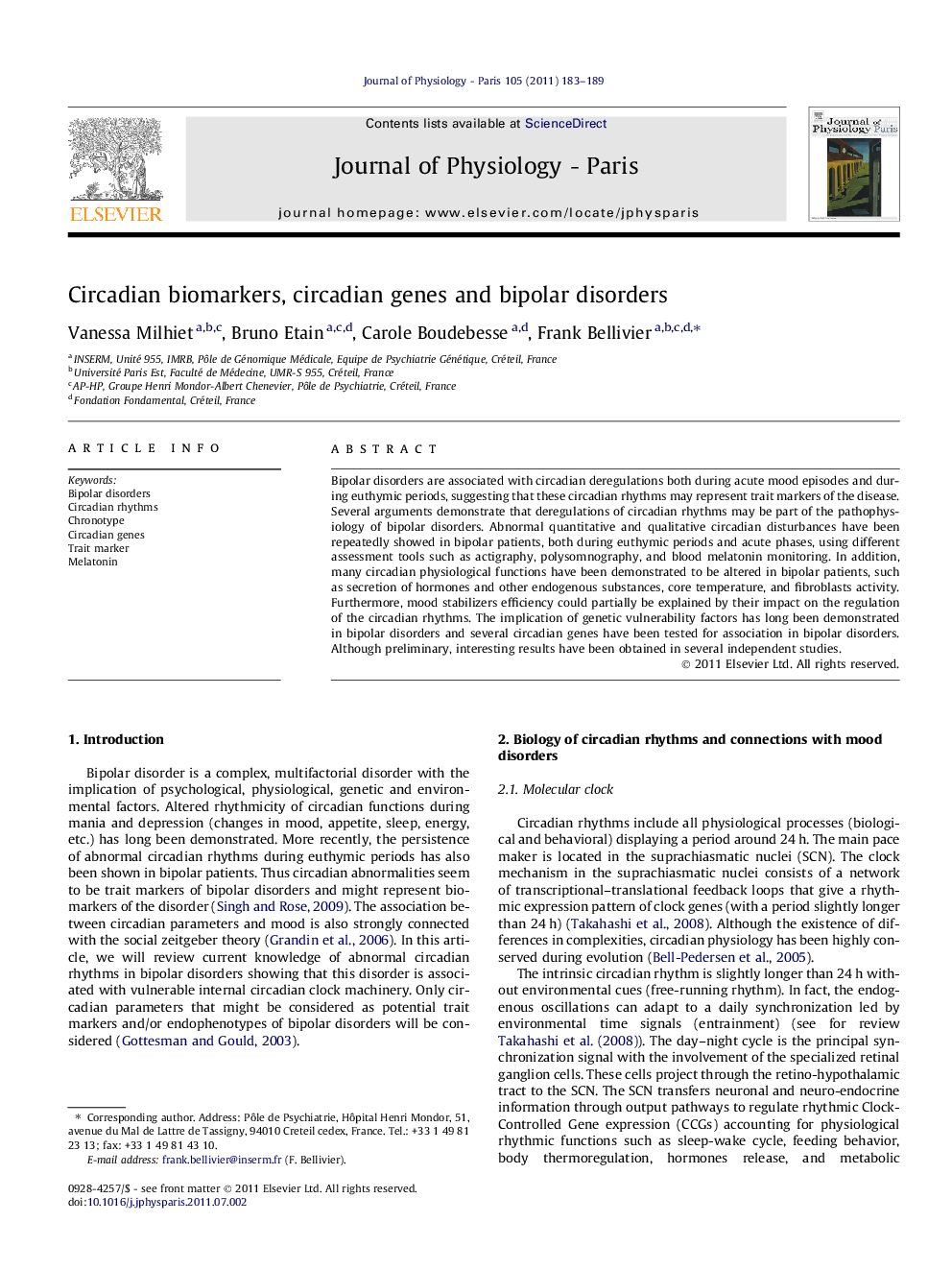| Article ID | Journal | Published Year | Pages | File Type |
|---|---|---|---|---|
| 2842404 | Journal of Physiology-Paris | 2011 | 7 Pages |
Bipolar disorders are associated with circadian deregulations both during acute mood episodes and during euthymic periods, suggesting that these circadian rhythms may represent trait markers of the disease. Several arguments demonstrate that deregulations of circadian rhythms may be part of the pathophysiology of bipolar disorders. Abnormal quantitative and qualitative circadian disturbances have been repeatedly showed in bipolar patients, both during euthymic periods and acute phases, using different assessment tools such as actigraphy, polysomnography, and blood melatonin monitoring. In addition, many circadian physiological functions have been demonstrated to be altered in bipolar patients, such as secretion of hormones and other endogenous substances, core temperature, and fibroblasts activity. Furthermore, mood stabilizers efficiency could partially be explained by their impact on the regulation of the circadian rhythms. The implication of genetic vulnerability factors has long been demonstrated in bipolar disorders and several circadian genes have been tested for association in bipolar disorders. Although preliminary, interesting results have been obtained in several independent studies.
► Bipolar affective disorders are associated with abnormal chronotypes. ► Chronotypes as trait vulnerability markers of bipolar disorders. ► Circadian genes are candidate vulnerability genes in bipolar disorders. ► Association between circadian genes and abnormal chronotypes found in bipolar disorders.
